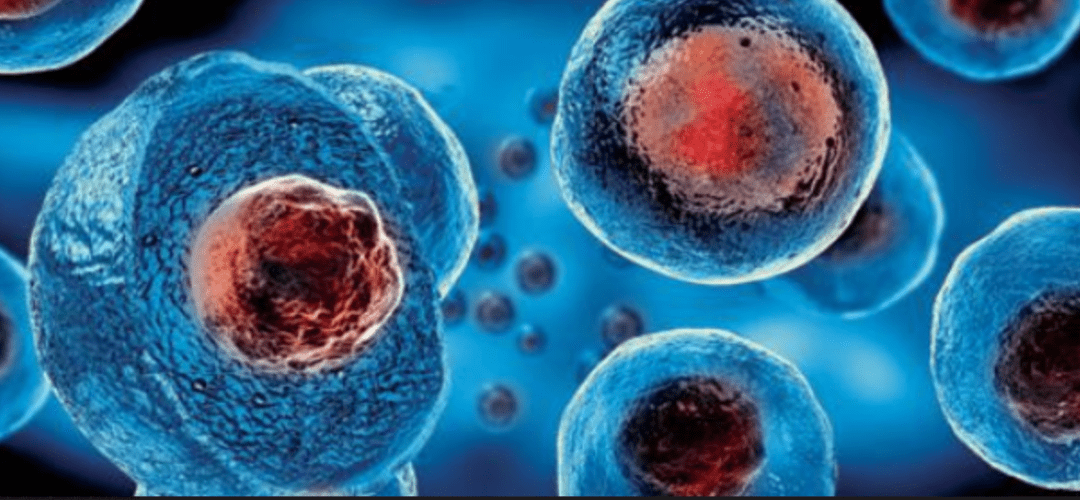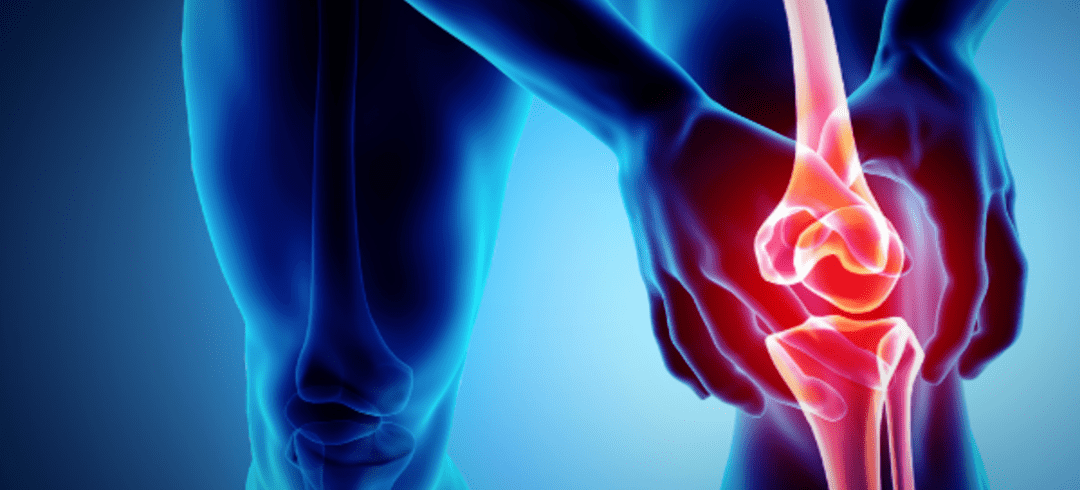
by Stemedix | Sep 20, 2021 | ALS, Stem Cell Therapy
Standard treatment protocols for Amyotrophic Lateral Sclerosis (ALS) are typically focused on educating and managing the severity of symptoms they may be facing. However, stem cell-based therapy is an alternative option for managing this condition and its symptoms. This optional therapy has been the subject of several studies in recent years and the initial results have shown positive outcomes. Here we will talk about Stem cell therapy for Amyotrophic Lateral Sclerosis.
Regenerative medicine, also known as stem cell therapy, involves the administration of a concentrated volume of stem cells to targeted areas. It is a management tool to potentially slow down the progression of ALS as well as help to manage symptoms or the development of new symptoms.
Stem cells are naturally present in the body. Mesenchymal stem cells are the most commonly used in cell-based therapies. They can be derived from autologous (Adipose or Bone Marrow) and allogeneic tissues (Wharton’s Jelly). Studies have shown these to be safe and potentially effective for their regenerative and therapeutic properties.
Below, we’ll examine the potential benefits of cell-based therapies for ALS.
The Condition
Often referred to as Lou Gehrig’s disease, Amyotrophic Lateral Sclerosis is a neurodegenerative condition that is characterized by a progressive breakdown in motor skills and voluntary control of movements. The condition can progress quickly or slowly over time.
Some of the most common symptoms of ALS include:
- Difficulty walking
- Frequent falling and tripping
- Weakness in the hands
- Slurred speech
- Muscle cramps
- Inappropriate laughing or crying
- Behavioral and cognitive changes
Potential Application of Stem Cells for Managing ALS
Currently, the potential benefits of stem cell therapy for ALS are still being researched and studied. With that being said, early data is has shown to be promising.
Patients who have had little success with conventional protocols or may want to add to their current therapies have been exploring stem cell therapy to potentially slow the progression of the disease and help manage symptoms. Mesenchymal stem cells help stimulate the body’s natural healing capabilities and have the ability to regenerate damaged tissues.
A clinical trial showed results that support that stem cells could potentially reduce functional impairments. Patients in the trial experienced no significant side effects and the procedure was tolerated well by all of the trial participants.
Stem cells are safe for repetitive use, as well, which means that patients can receive ongoing maintenance treatments if the therapy provides positive results even if this result is slowing down or stabilizing the progression of the condition.
The hope is that there will soon be additional, large-scale randomized control trials on stem cell therapies for ALS in the future. These types of trials would provide further insights into the potential of this treatment option for ALS patients.
Fortunately, access to stem cell therapy for Amyotrophic Lateral Sclerosis ( ALS ) is currently available, which gives patients additional therapy options when exploring how to help manage their condition and symptoms.

by Stemedix | Sep 13, 2021 | Stem Cell Therapy, Pain Management
Hips are some of the strongest and largest joints in the body. They support the body’s weight and provide a wide range of motion. Despite their power, hips are susceptible to disease, trauma, and gradual degradation. Over time, hip joints can succumb to many different pathologies. For example, osteoarthritis is one of the leading causes of pain in the hip. This can result from chronic overuse. Hip pain can result in many serious consequences. For instance, hip pain can limit a patient’s mobility and affect their ability to sleep. Pinched nerves, certain types of cancers, and infections can all lead to hip discomfort. Here we answer the question, How long does stem cell therapy last for hips?
Treatments for Hip Pain
There are many traditional medical treatments for hip joint discomfort. They include:
- Pain medication
- Rest
- Arthroscopic surgeries
- Physical Therapy
- And more
In severe cases, hip replacement surgery may be necessary. Hip surgeries can be very difficult for patients. In many cases, they may result in significant pain and long recovery periods. Thankfully, there are options beyond traditional treatments for hip pain.
Research over the past several decades has indicated that regenerative medicine, also known as stem cell therapy, may be useful for treating hip pain.
Understanding Stem Cell Treatments
Stem cells are one type of simple cell that the human body produces. They can stimulate the growth of new tissue in many areas and systems in the body. Beyond that, stem cells encourage the body’s natural healing processes. These simple cells can be used to differentiate and potentially regenerate tissues.
In some cases, healing can be difficult when not enough stem cells are produced in a certain area. This sometimes contributes to hip pain and discomfort. The introduction of stem cells into a problem area can help motivate the growth and renewal of tissue in the hip joint. Stem cell therapies also have the potential to reduce painful inflammation in the hips and other joints.
Stem cell treatments are minimally invasive and have been shown to be safe. Some patients have used stem cell therapies to prevent the need for painful surgeries.
Benefits of Stem Cell Therapy for Hips
Stem cell therapy for hips, also known as regenerative medicine for hip joints or hip joint stem cell treatment, involves the use of mesenchymal stem cells to repair and regenerate damaged hip joint tissue. This type of therapy is especially beneficial for those with hip osteoarthritis, a condition where the cartilage in the hip joint wears down, causing pain and stiffness. Mesenchymal stem cell therapy for hip osteoarthritis has been shown to improve pain, increase joint function, and promote tissue repair and regeneration. Stem cell hip regeneration and hip joint tissue repair using stem cells are promising treatments that offer an alternative to surgical interventions and can significantly improve the quality of life for those suffering from hip joint problems.
How Long Do Stem Cell Treatments Last?
So, how long does Stem Cell Therapy last for hips? In most cases, patients treated with stem cell therapies can return to their normal activities within six weeks.
The length of improvement in the patient’s hip pain may vary, depending on their condition. However, many patients have experienced years of hip pain relief from stem cell therapies.
Also, the minimally-invasive nature of stem cell therapies allows patients to receive further treatments, if necessary. This innovative approach to hip pain relief provides an exciting opportunity for patients everywhere. If you are interested in booking a consultation with a care coordinator contact us today at Stemedix!

by Stemedix | Sep 6, 2021 | Stem Cell Therapy
Stem cell therapy is an exciting treatment option for patients who are facing a variety of health challenges. It is particularly beneficial for patients who are struggling with orthopedic and sports-related injuries. Like any athlete, these patients are all too eager to get back to their normal activities. However, they must adhere to post-management care protocols to maximize the benefits of stem cell therapy.
Whether you are thinking about undergoing stem cell treatment or you’ve just completed your procedure, we want to help by providing some post-management suggestions on how best to ease back into the activities that you love. Always discuss with your provider to ensure the post-treatment protocol is best for your specific case and healing process.
Weeks One and Two
During the first two weeks after your procedure, limit your activities to basic tasks that are necessary for daily life. You may experience soreness, but general movement like light walking will help to speed up your recovery process.
If your treatment was focused on the hip or knee joint, then we recommend avoiding stairs, uneven ground, or deep squats. You should also avoid weightlifting or any strenuous activity during this stage of the recovery process.
Apply heat only for the first two weeks. In the morning, apply heat, massage, and stretch. Repeat in the evening. If possible, use a massage assistance device.
Weeks Three and Four
During weeks three and four, you should still avoid weightlifting, running, and repetitive load-bearing exercises. However, incorporating an elliptical or exercise bike into your routine is a great idea. You can also go for a swim during this period, as any incisions should be sufficiently healed.
As a general rule, let pain be your guide. If a particular movement hurts, stop or slow down. Continue to avoid NSAIDs until after week four. If you are experiencing inflammation, you can now alternate between hot and cold compresses.
Weeks Five Through Eight
During weeks five and six, you may transition into some light weightlifting, but avoid anything that compresses the joint. For instance, if you received stem cell injections in the knee, then you should avoid deadlifts, squats, box jumps, etc.
Once you have made it to week seven, begin easing back into your regular training regimen. Increase weights slowly and avoid overloading the affected joint. Doing so could hinder the healing process and diminish the benefits of stem cell therapy.
Post-Treatment Benefits
When you’re receiving stem cell treatment for orthopedic conditions, it is common to experience benefits between the three- to six-month post-treatment time frame. Continue to build back up to your normal training volume and intensity. Follow the provider’s recommendations for optimal outcomes and be patient to allow the stem cells to facilitate their healing capabilities to the injured joint and tissues. Contact us today to learn more about post-management care.

by admin | Sep 3, 2021 | Stem Cell Therapy, Mesenchymal Stem Cells, Stem Cell Research
Human mesenchymal stem cells (hMSCs) are multipotent adult stem cells found in tissue throughout the body, including in the umbilical cord, bone marrow, and adipose tissue. Capable of self-renewing and differentiating into multiple tissues including bone, cartilage, muscle, fat cells, and connective tissue[1], MSCs appear to have a wide range of potential for use as therapeutic purposes for many serious health problems occurring throughout the body.
In this review, Rodriguez-Fuentes et al. examined currently registered (as of July 2020) clinical trials involving mesenchymal stem cells with the goal of analyzing the different applications of MSCs in a clinical setting to demonstrate the growing and broad potential of their therapeutic application relative to the reconstruction of damaged tissue.
As of July 2020, the authors identified 1,138 registered clinical trials (CTs) worldwide using MSCs to investigate their therapeutic potential. Therapeutic applications are a relatively new area of study, evidenced by the fact that only 19 CT studies were started between 1995 and 2005 and over 900 were initiated in the last ten years (2011-present). The majority of these CTs focused on the fields of traumatology, neurology, cardiology, and immunology. Interestingly, of the 1,138 CTs identified in this query, only 18 had published outcomes.
Examining the global distribution of registered CTs, it was observed that CTs are located in 51 countries, with China (228) and the US (186) leading the research.
As part of this review, and in addition to examining the number and geographic locations of registered CTs, the sourcing, isolation and treatment methods, and storage conditions of MSCs used in each clinical trial.
Most of the MSCs used for these CTs were obtained from cells of the iliac crest, placenta, and adipose tissue. All recovered cells underwent steps of purification and expansion prior to use in patients. Additionally, all methods used in these CTs were also found to follow good manufacturing practices (GMP).
Upon completing their review of registered CTs, Rodriguez-Fuentes et al. also observed that medical specialties for the most published studies included (in descending order) cardiology, traumatology, pneumology, neurology, hematology, ophthalmology, and plastic surgery. The most frequent pathologies addressed in these published CT studies included knee osteoarthritis, ischemic heart disease, and dilated cardiomyopathy. While the number of MSCs used varied by study, most utilized around 100 million MSCs.
The authors concluded that most studies analyzed as part of this review demonstrate positive outcomes with no serious adverse effects. While China and the US lead the world in the number of registered MSC clinical trials, the authors point out the fact that many of these CTs have multiple locations in different countries – indicating the importance of, and willingness to, collaborate internationally on this research.
Although most of the conditions for which clinical utility of MSCs have been published are conditions that do not currently have specific treatments with desirable or effective outcomes, there appears to be significant and broad potential for the clinical use of hMSCs without serious adverse events.
While there are currently at least 1,138 registered MSC CTs, there is still much to be examined and understood about MSCs. As such the continually increasing number of CTs including MSCs will help identify and demonstrate the therapeutic potential of these versatile stem cells.
[1] “Mesenchymal stem cells – Latest research and news | Nature.” https://www.nature.com/subjects/mesenchymal-stem-cells.
Source: Mesenchymal Stem Cells Current Clinical Applications. From https://www.sciencedirect.com/science/article/pii/S018844092030638X

by Stemedix | Aug 30, 2021 | Osteoarthritis, Stem Cell Therapy
Before the advent of stem cell therapy, patients that were suffering from osteoarthritis were forced to rely on traditional treatment options. These treatments included oral medications, cortisone injections, and surgical intervention. Fortunately, stem cells have shown to be a promising and safe alternative treatment option. Stem cell therapy has the potential to help patients improve their quality of life, reduce pain, and potentially halt the progression of osteoarthritis. Below are the stem cell therapy benefits for Osteoarthritis. They are outlined so you can make an informed decision regarding the best options to manage your osteoarthritis.
What Are Stem Cells?
Stem cells are a unique type of cell that is often described as the body’s raw building blocks because they are used to form a variety of other specialized cells. Stem cells can be harvested in a laboratory setting and concentrated for various therapies. They can be used to treat neurodegenerative, autoimmune, and orthopedic ailments.
Two primary types of stem cells that are used more commonly today in medical therapies are known as adult autologous stem cells and umbilical cord-derived stem cells.
Autologous stem cells are derived from harvested adipose (fat) tissue or bone marrow aspirate. Umbilical cord-derived stem cells are retrieved from Wharton’s Jelly, which is a substance that lines the interior of umbilical cords.
How Can Stem Cells Improve Osteoarthritis Symptoms?
While stem cell therapy is still being refined and improved upon, it has shown positive results in clinical trials. In many of these studies, stem cells proved to be a potentially effective therapy for osteoarthritic conditions to offer patients additional options to consider in addition to several traditional options. Below are some improvements reported.
Reduce Pain and Inflammation
Although it is technically not a cure nor can be guaranteed, stem cell therapy has been shown to help relieve some of the most debilitating symptoms that osteoarthritis patients encounter like pain and inflammation.
Chronic pain and inflammation have the potential to diminish a person’s quality of life. These ailments can prevent a person from participating in activities they enjoy and reduce their mobility. Many patients have experienced drastic pain improvement after using stem cell therapy. Some of them saw improvements as soon as one month following their treatment. Post-treatment care is also important for patients to follow to help optimize their outcomes.
Improved Functionality
As pain and inflammation subside, functionality tends to improve. Stem cell therapy has helped a high percentage of patients to become more independent and resume normal activities. They were able to become less reliant on others and saw improvements in functionality when compared to other treatment options.
Halts Progression of Osteoarthritis
In some trials, stem cell therapy was able to halt the progression of osteoarthritis. While these results were not typical, it does bode well for patients that are struggling with severe osteoarthritic conditions.
If you are suffering from osteoarthritis or other orthopedic conditions, you may want to explore the stem cell therapy benefits for Osteoarthritis. This treatment option might help you improve your quality of life and achieve better outcomes in addition to your current standard of care options. If you would like to learn more about getting started contact us today!

by Stemedix | Aug 23, 2021 | Stem Cell Therapy
Stem cells are a groundbreaking form of regenerative medicine that is being used to potentially help manage many ailments, including orthopedic injuries and chronic conditions. This treatment option offers many potential benefits to patients that suffer from orthopedic conditions. Here we will talk about the Orthopedic benefits of Stem Cell Therapy.
While stem cell therapy is not necessarily a cure for these ailments, patients have reported improvements in their symptoms without the need for more invasive treatments such as surgery.
What is Stem Cell Therapy?
Stem cells are unique because they have the ability to divide and transform into specialized cells. Stem cells can facilitate the body’s natural healing processes and repair damaged tissue. However, the concentration of stem cells in your body naturally decreases as you age.
Mesenchymal stem cells can be harvested stem cells from one of several sources. Stem cells can be harvested from bone marrow aspirate, adipose (fat) tissue, or umbilical cords (Wharton’s Jelly). Once harvested, the stem cells are administered directly to the problematic areas and/or systemically with an IV.
Stem cell therapy targets your orthopedic ailment with a high concentration of these cells. These cells will divide and replace damaged tissue, thereby alleviating or improving your chronic orthopedic symptoms.
How Are Stem Cells Used to Treat Orthopedic Conditions?
Orthopedic conditions are usually the result of inflammation and damage to bone, ligaments, tendons, or cartilage. Stem cells are naturally drawn towards inflammation within your body. In addition, stem cells can differentiate into various cells, including progenitor cells. Once this occurs, they can transform into specialized cells, such as those in your musculoskeletal tissues.
Instead of managing orthopedic conditions with medication or surgical intervention, stem cells can offer an alternative option for patients to explore. These cells have the potential to provide the body the resources it needs to rebuild damaged tissues naturally.
Potential Benefits of Stem Cells
Stem cell therapy is continuing to be researched but studies have shown it to be a safe and potentially effective treatment option for many patients that are struggling with orthopedic conditions. While your physician cannot guarantee that your stem cell therapy will produce a specific outcome, this treatment option does offer many potential benefits.
Stem cell therapy uses natural materials and your body’s innate healing abilities to treat orthopedic conditions. This allows you the opportunity to manage your condition without the use of medications and surgical interventions. Many medications can have some side effects. Stem cells have been shown to have minimal side effects and are safe to be considered a natural option.
If you are struggling with chronic pain due to an orthopedic condition or injury, stem cell therapy may be a considered treatment option to potentially help manage symptoms and improve your daily quality of life. If you would like to learn more about the Orthopedic benefits of stem cell therapy contact a care coordinator today!
Don’t let pain control your life, call us at (800) 531-0831







 St. Petersburg, Florida
St. Petersburg, Florida
